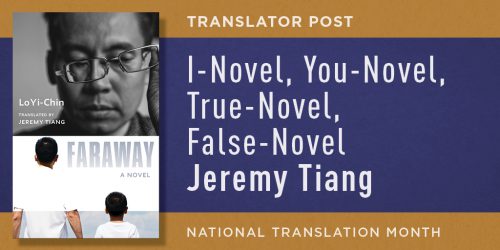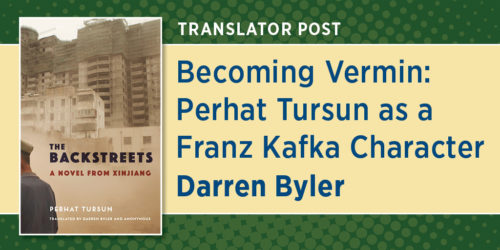Five Aftershocks in Japan: Five Years After the Fukushima Disaster
Today, in memory of the Fukushima disaster, marketing intern Kalle Mattila has delved into five aftershocks as described by Hideo Furukawa, author of a recent Columbia UP book: Horses, Horses in the End the Light Remains Pure.
Hideo Furukawa is a novelist from Fukushima, the center of the earthquake, tsunami, and nuclear meltdown that devastated northeast Japan on March 11, 2011. His new book, Horses, Horses, in the End the Light Remains Pure: A Tale that Begins with Fukushima, is a fusion of fiction, history, and memoir in post-3/11 Japan.
STIGMA
“When someone from Fukushima tries to make a reservation at a hotel in a different prefecture, they’re told they can’t stay there. When they try to go to a gas station in another prefecture, they’re told that cars with Fukushima plates can’t fill up there. I’ve heard people say that women from Fukushima will have trouble getting married because of the belief that the radiation might affect their future children. The people who think this way might represent a minuscule minority of the whole country, but for me the saddest part is that because of the radiation leak we have lost that sense of unity that we had after the earthquake. As the victims of the earthquake and the tsunami, the people of Japan had the world’s sympathy. I still believed that if we joined together we could bring things back to the way they used to be.” (The Nation)
URBAN GUILT
“All of the electric output from the Fukushima Nuclear plant was destined for Tokyo—indeed, the power plant is administered not by any local entity but by Tokyo Electric Power Company, which means that the most insidious changes from the radiation, which affect every aspect of the living beings of Fukushima, are caused solely by and for Tokyo.”
ANIMAL SHOCK
“I didn’t expect these sorts of horses: refugee horses, horses that had been driven out by the tsunami, injured horses. Some were in the pasture, some were in stables. The stables were being managed by an NPO. Young S had heard that volunteers were taking care of the horses. I realized only later that the horses being cared for here had been temporarily evacuated to a separate prefecture in a forced immigration, probably one step toward becoming permanent evacuees, outside Fukushima Prefecture.
“Hair loss. Easy to deduce that this was a symptom of stress. From fear, I assume. There was hair there on the tip of its muzzle. There was, of course, hair covering its body, and bangs, but also transparent hairs sticking out from its chin, like cat whiskers. Ten or so. I didn’t know that horses had hair like that, like whiskers.
“I assume he was frightened. I looked down at his feet. I could see that he was not using all the available area. He stayed in one space, the area right near the entrance, the space, that is, where he could be petted, where he could be in contact with those who came to visit. Back and forth, endlessly, in the confined space no larger than two square meters, kicking the ground with his hooves.”
SPOILED GROUND
“Twenty-eight elementary and preschools within the Kōriyama city limits would have the surfaces of their open schoolyards removed. They were going to remove of the top layer of soil on the playgrounds because they had become repositories of radioactive material. Although I didn’t hear about this through newspaper reports, I later learned that heavy machinery also entered the grounds of the elementary school where I had spent six years. I imagined what it must look like. A bulldozer is scraping the open spaces of my school. Layer upon layer.” (The Nation)
“One of the rituals of grade school in Japan is for the students to fill up a time capsule at graduation and bury it in the ground at school. They are supposed to dig it up in twenty years, but in my school the ground that held our memories was contaminated by radiation. The bulldozers carted it all away.”
NEW PERCEPTIONS
“One positive, unexpected outcome of the 3.11 disaster was that it promoted another, or new, image of Japanese people to other countries. I think this was due simply to the fact that the disaster hit no other region but Tohoku, whose people are known for characteristics that surprised the foreign media: they are patient, extremely well-mannered, unselfish, cooperative, and so forth. Those virtues might not be the first image people in other countries have of ‘Japanese’ people before 3.11, though these are very Japanese in my view.” (Asymptote)
Sources:
The Nation
Asymptote
Read an excerpt here.
See Furukawa’s NY author tour schedule here.






